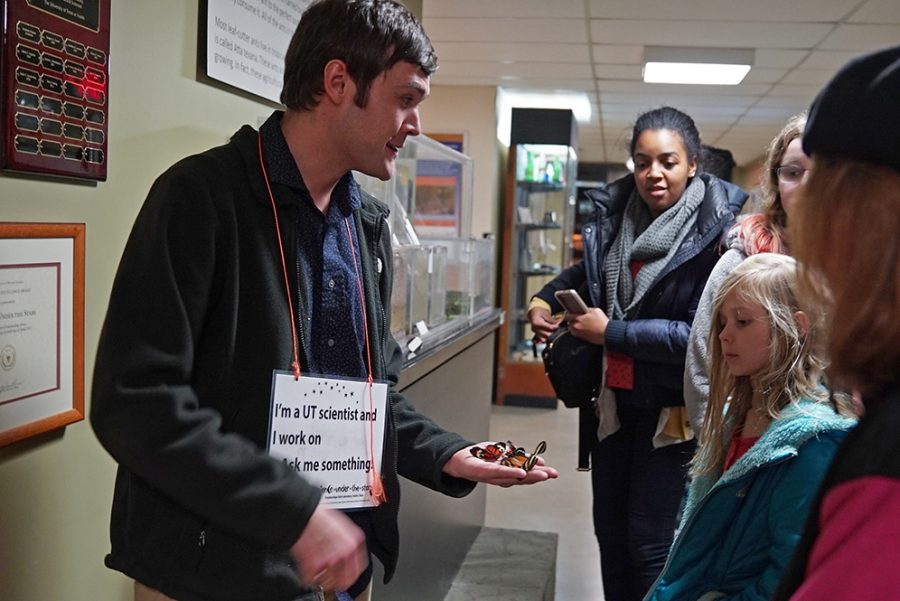In the midst of flu season, UT students led a public discussion on the spread of diseases worldwide and how government agencies try to stop them.
The Science Under the Stars outdoor series kicked off with a discussion led by epidemiologist Spencer Fox. People of all ages engaged in a discussion followed by a question and answer session about why diseases spread and strategies used by public health agencies to stop outbreaks, such as Ebola and Zika.
“The flu pandemic is starting in Mexico, and following flight paths around the globe,” Fox said. “This is a seasonal epidemic, and it’s worst in the winter … When humidity is low, flu is high.”
Fox, a doctorate in ecology, evolution and behavior, calls himself a “disease detective,” recently researching the unusually active flu season. Fox’s work has been featured in multiple national news outlets, including NPR and The New York Times.
Fox said the Center for Disease Control effectively slowed down the Ebola epidemic, which demonstrates how agencies control, treat and eliminate deadly diseases.
“Agencies use contact tracing to find remaining cases,” Fox said. “Once you find the people a sick person (has come in contact with), they are immediately isolated and treated,” Fox said.
Colin Morrison, ecology, evolution and behavior graduate student, researches plant–insect interactions and is a member of Science Under the Stars. Morrison said it’s important to have awareness about diseases and epidemiology.
“There’s a lot of myths and legends about disease,” Morrison said. “Ebola and Zika have created a lot of fear. Having someone like Spencer discuss this topic, and having a better understanding, will help to alienate that fear.”
The monthly lectures cover various scientific topics and are free to the public.
Allison Davis, ecology, evolution and behavior graduate student, helped plan the event. Davis conducted her research in the fields of ecology and evolution, specifically in female fish. Davis said she wants a larger amount of the public to be excited about science.
“We want these programs to connect the public to the UT community,” Davis said. “This is important, and we want them to be interested in science at all ages.”
Davis also said she looks forward to getting the community engaged in science with future lectures this semester.
“The more you know, the easier it is to deal with situations,” Davis said. “Making educated decisions will help to get things done.”





















